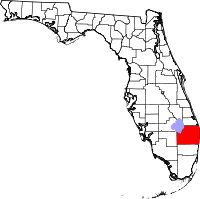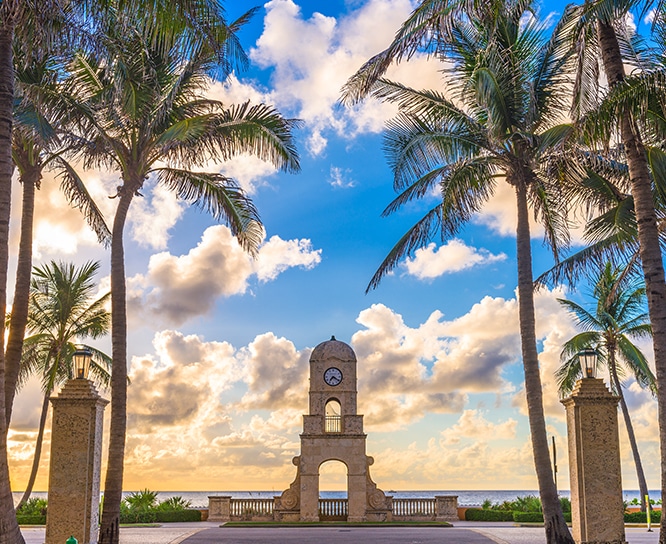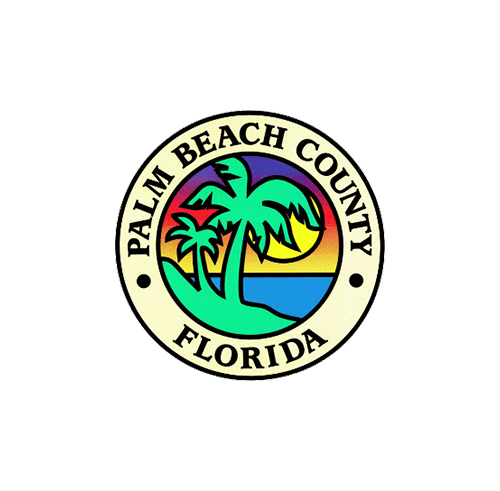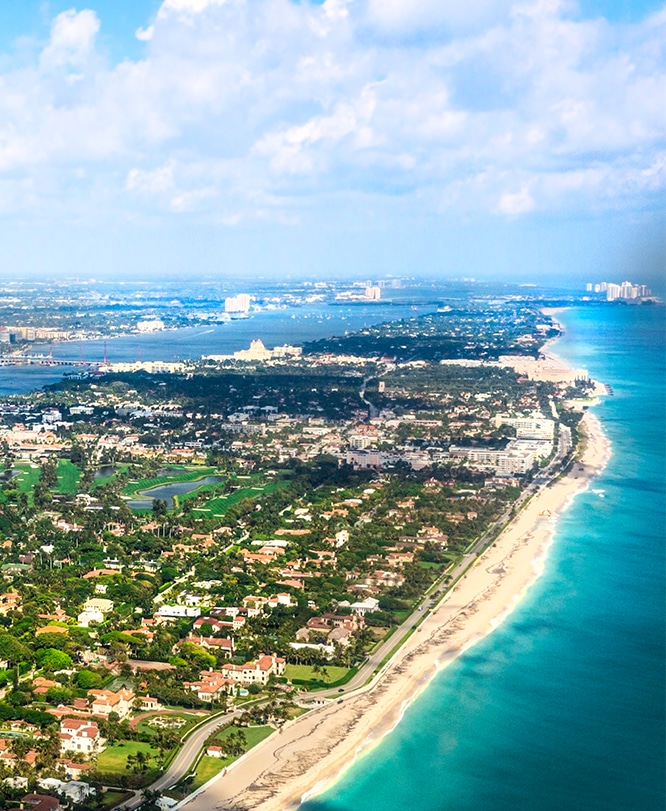Palm Beach Gardens Florida Probate Court
West Palm Beach Probate Process for Residents & Non-Residents
 In Florida, probate is a court-supervised process in which a deceased person's assets are identified and beneficiaries are determined. The probate process is designed to ensure that potential creditors have an opportunity to pursue claims against the estate, as well as provide a forum for identifying the correct beneficiaries to receive the decedent's property.
In Florida, probate is a court-supervised process in which a deceased person's assets are identified and beneficiaries are determined. The probate process is designed to ensure that potential creditors have an opportunity to pursue claims against the estate, as well as provide a forum for identifying the correct beneficiaries to receive the decedent's property.

Florida Probate Process
When someone passes away leaving a valid Last Will & Testament, anyone with possession of the Will must file the original document with the correct circuit court, aka probate court. The original Last Will & Testament and any probate pleadings will be filed in the county of last residence for the decedent. For example, if the decedent passed away as a resident of Greenacres, then Palm Beach County would be correct jurisdiction for a domiciliary probate proceeding for assets in West Palm Beach. If there is no Last Will & Testament for the decedent, then any probate assets will be distributed according to the Florida intestacy statute, which provides a default distribution scheme for assets based on familial relationships.
In Palm Beach County, the probate process is handled by the 15th Judicial Circuit Court of Florida. Depending on the petitioner's address, the county will determine which courthouse the case is assigned to. There are five Courthouse locations located throughout Palm Beach County, Florida:
- Judge Daniel T.K. Hurley Courthouse – 205 North Dixie Highway, West Palm Beach, FL 33401
- North County Courthouse – 3188 PGA Blvd, Palm Beach Gardens, FL 33410
- South County Courthouse – 200 W. Atlantic Ave, Delray Beach, FL 33444
- West County Courthouse – 2950 State Rd 15, Belle Glade, FL 33430
- Criminal Justice Complex – 3228 Gun Club Road, West Palm Beach, FL 33406
Probate Assets
 The most relevant factor in determining if a probate is necessary, is assessing if there are any probate assets, as oppose to non-probate assets. Probate assets are those titled in the sole name of the decedent, and do not have a beneficiary designation or POD feature. All probate assets are frozen and can only be transferred through the probate process. There are many types of non-probate assets, such as jointly held property, IRAs and life insurance proceeds payable to a beneficiary, etc.
The most relevant factor in determining if a probate is necessary, is assessing if there are any probate assets, as oppose to non-probate assets. Probate assets are those titled in the sole name of the decedent, and do not have a beneficiary designation or POD feature. All probate assets are frozen and can only be transferred through the probate process. There are many types of non-probate assets, such as jointly held property, IRAs and life insurance proceeds payable to a beneficiary, etc.
The first step in identifying probate assets is to confirm how the decedent's real estate is titled, by visiting the Palm Beach County Property Appraiser. If the property appraiser report and most recent deed confirm that the real estate, aka real property, is in the sole name of the decedent, then a probate will be required in order to eventually sell or transfer the property. Often the goal is to sell the piece of real estate during the probate process, and to have to proceeds divided among the identified beneficiaries. It is advisable to wait until an estate is open, and a personal representative is appointed before executing any type of sales contract.
The second step for identifying probate and non-probate assets is to check the mail of the decedent, since financial institutions and insurance companies will periodically send correspondence regarding accounts. The personal representative of the estate, or the immediate family members of the decedent, should have the decedent's mail forwarded to a convenient location by requesting a change of address or mail forwarding with the United States Postal Service. The request can be made on the UPSPS website, or in person at a branch location.
Restricted Depositories
Palm Beach County, like Broward and other surrounding areas, has begun utilizing restricted depositories for most formal probate administrations. This means that the bank account which is set up in the name of the estate and is used to deposit estate assets will be a court restricted account. Unlike a normal bank account, where the owner can simply write a check to release funds, a restricted account requires a court order to release funds for any purposes, including the payment of expenses associated with the estate. Consult with an experienced probate attorney in Palm Beach County for the best techniques in establishing a restricted depository and expediting the administration.
Ancillary Probate for Non-Residents
Ancillary probate refers to a secondary probate proceeding that takes place in any state other than the domiciliary state. Ancillary probate is necessary to transfer or sell real estate, aka real property, located in any state other than the decedent's domiciliary state.
After someone passes away, the first step in the probate process is to establish the domiciliary estate in the decedent's state of residence. Once a personal representative, or executor is appointed for the domiciliary proceeding, the next step is to petition to initiate the ancillary probate in the county in which the real estate is located.
As an example, John lives in Connecticut but owns a vacation home in , FL. When John passes away, his Last Will & Testament must be submitted to his local probate court in Connecticut to begin the domiciliary probate process. A second probate process must also be started in Royal Palm Beach, Florida to transfer the home to his beneficiaries, or to clear title to a new owner via the sales process.
Generally, ancillary probate administration is required in Florida when someone who was not a Florida resident dies and:
- Owned Florida real estate
- Owned a Florida timeshare
- Owned Florida property or liability that would require the signature of an appointed personal representative in Florida for transfer, collect, or discharge
Ancillary probate in Palm Beach County, Florida can complicate the already time-consuming and sometimes costly probate process, but it is the only way to pass Florida real estate to the rightful beneficiaries. Because ancillary probate has the potential to prolong the domiciliary probate proceeding, it is crucial to work with a skilled Florida ancillary probate attorney.
An experienced ancillary probate lawyer serving the area of Palm Beach County can assist with every step of the probate process, and potentially serve as a personal representative to prevent potential delays and finalize the probate as quickly and smoothly as possible.
If you need assistance with probate in Palm Beach County, Florida — contact the Florida Probate Law Firm for a free 30 minute consultation at (561) 210-5500.

The Florida Probate Law Firm proudly serves all municipalities in Palm Beach County, FL
- Atlantis
- Belle Glade
- Boca Raton
- Boynton Beach
- Briny Breezes
- Clarke Shores
- Cloud Lake
- Colony Lake
- Delray Beach
- Glen Ridge
- Golf
- Golfview
- Greenacres
- Gulf Stream
- Haverhill
- Highland Beach
- Hypoluxo
- Juno Beach
- Jupiter
- Jupiter Inlet
- Lake Park
- Lake Worth
- Lantana
- Manalapan
- Mangonia Park
- North Palm Beach
- Ocean Ridge
- Pahokee
- Palm Beach
- Palm Beach Gardens
- Palm Beach Shores
- Palm Springs
- Riviera Beach
- Royal Palm Beach
- South Bay
- South Palm Beach
- Tequesta
- Wellington
- West Palm Beach
If you need assistance with probate in Palm Beach County, FL — contact the Florida Probate Law Firm for a free 30 minute consultation at (561) 210-5500.

Source: https://www.floridaprobatefirm.com/county/palm-beach/

0 Response to "Palm Beach Gardens Florida Probate Court"
Post a Comment